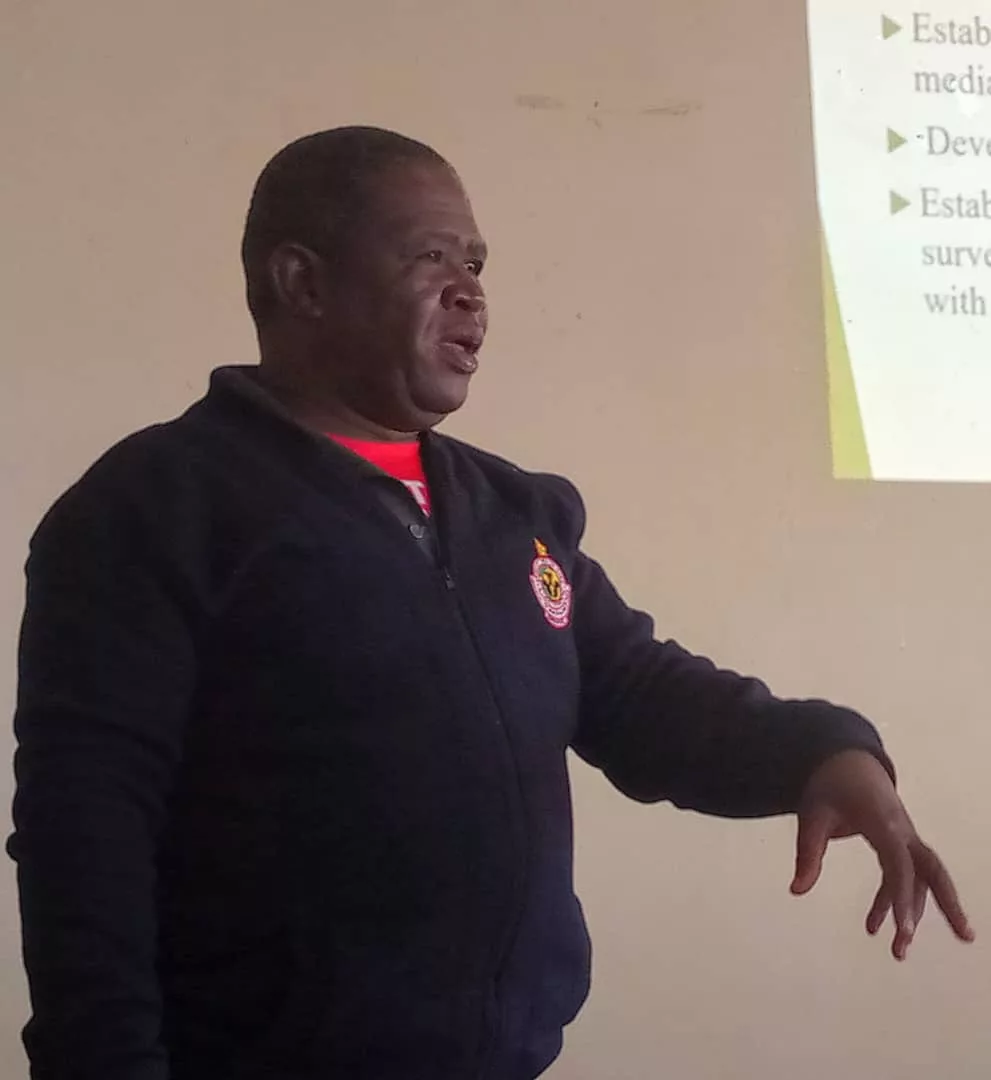|
Getting your Trinity Audio player ready...
|
Writes Elvis Dumba
Chinhoyi – The media plays a critical role in events and surveillance-based reporting that assists in early health outbreak detection.
This was said by Mashonalnd West Provincial Nursing Officer, Farai Marufu, during a UNICEF-sponsored cholera media briefing.
“The media plays a critical role in assisting the Ministry of Health in the fight against cholera and detection of health outbreaks through events reporting that enables authorities to detect health outbreaks and also assist in awareness raising. The media and health ministry must create synergies in responding to health outbreaks,” he said.
With the current Cholera outbreak that started on 12 February 2023, recording 3457 cases with 59 deaths, the health ministry intends to establish a provincial Risk Communication and Community Engagement cholera coordination media committee that will increase awareness on prevention and treatment of cholera and early detection of other disease outbreaks in the province.
With portable water challenges in urban areas, all seven districts in Mashonaland West have been affected. The provincial cholera outbreak situation report of 27 June 2024 has two suspected cholera cases from Sanyati and Kadoma. Cumulative cholera deaths currently stand at 69 deaths with 5 being confirmed as cholera deaths whilst 64 are suspected deaths linked to cholera. The province has recorded a recovery rate of 98% from a cumulative 3771 suspected cases.
Most urban residents are now relying on boreholes as their main water sources of which some have been contaminated.
The public has been urged to monitor how authorities are carrying out their responsibilities in ensuring the provision of water, which is a human right, through demanding regular water source examinations as prescribed by the Health Act.
Provincial Health Promotion Officer, George Kambondo, urged the media to raise awareness among the apostolic churches who shun medical services.
“Usually for cholera, there are no drugs administered, but we only ensure that we restore lost water which would have been lost by the body and many people from the apostolic sects are afraid of seeking health services, fearing that they will get drugs administered on them, which is a myth the media should help to demystify,” he said.
During the meeting, it was revealed that artisanal miners relieve themselves in the mines they would be working in, putting themselves at a high risk of cholera.
Cholera is an extremely infectious disease that can cause severe acute watery diarrhea that may cause vomiting and takes between 12 hours to 5 days for symptoms to show.
Meanwhile, Chinhoyi Provincial Hospital is affected by power outages which requires the institution to have a dedicated power line.
“The institution is affected by power outages that affect its operations and there is a need for a dedicated power line,” Mr Marufu said.






